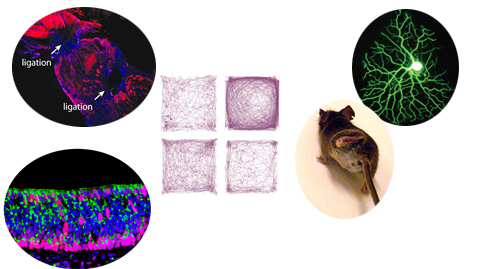Nykjær Group - Receptor Biology
Using transgenic animal models the Nykjær group is studying sortilin receptors in cellular sorting/trafficking, trans-synaptic communication, and neuronal development and signaling.
Research focus
Research activities are focused towards the functional characterization of a family of neuronal type-1 receptors denoted sortilins, comprising sortilin, SorLA, and SorCS-1, -2, and -3. Although expression predominates in neurons, receptors are also present in specialized cell types outside the nervous system. They bind a vast number of ligands spanning from neurotrophic factors, Alzheimer precursor protein (APP), and progranulin to lipoproteins, implying critical roles in regulation of neuronal survival, differentiation, and cholesterol metabolism. Indeed, a number of genetic association studies and gene targeting in mice have linked sortilin dysfunction with neurodegenerative disorders, ADHD, schizophrenia, bipolar disorder, hypercholesterolemia and diabetes.
Using transgenic mouse models and a broad repertoire of molecular, cellular and genetic tools it is the goal to unravel the function of the receptor family in health and disease and to evaluate their potential as drug targets.
Available projects
The Nykjær group currently has projects available for Master and PhD students. Please contact Group Leader Anders Nykjær directly, if interested.
